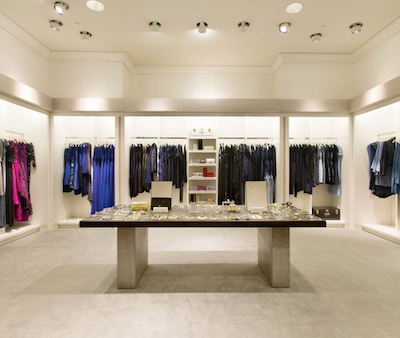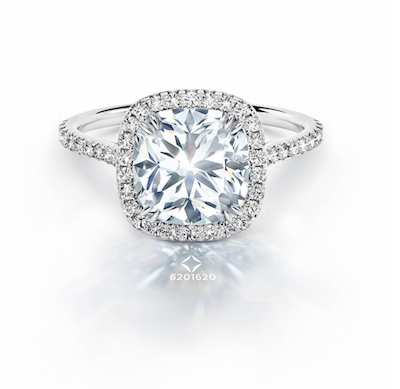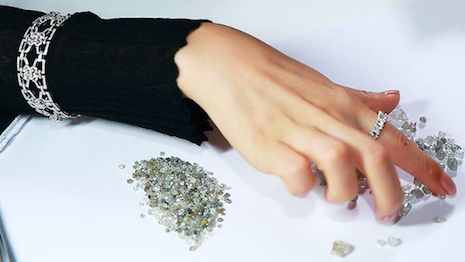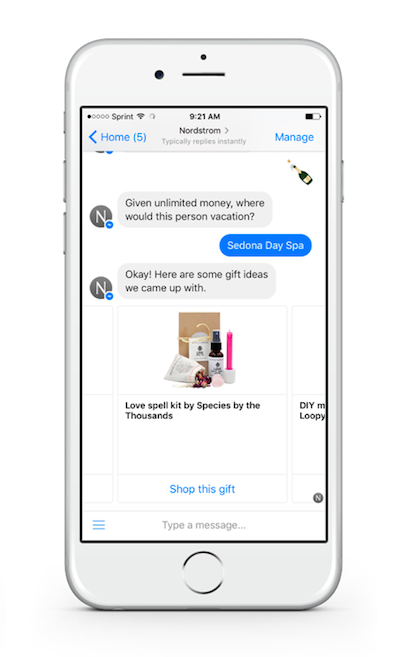Despite changes in behavior, today’s consumers are as appreciative as ever of luxury’s central pillars, but brands must continuously adapt and evolve their approach to demonstrate value, according to a new report by Positive Luxury.
Between a bevy of geopolitical issues and shifts in consumer behavior, the brands that succeed at securing value, without tarnishing their hard-won reputations, have protected their heritage by embracing quality, craftsmanship and storytelling pillars through modern strategy. Positive Luxury’s “2017 Predictions Report” suggests that a willingness to engage on a personal level, capitalize on social media data and collaborate with content and delivery models, among other tactics, provides a recipe for future success.
“In a turbulent world, if shoppers are going to invest in a luxury product, they want to spend in a way which feels like a positive action,” said Diana Verde Nieto, cofounder of Positive Luxury. “The next generation of luxury shoppers increasingly want to consume without the guilt and negative consequences of unethical practices.
“Purchases have become political in the sense that consumers know they can make a social, economic and environmental impact, however seemingly small, through where they shop and who they buy from,” she said.
Positive Luxury’s 2017 Predictions Report was prepared in partnership with British jeweler De Beers’ Forevermark. The report includes insights from business leaders, academics and the banking sector.
Be the change
Per Positive Luxury’s report, today’s consumers are mindful of the quality and craftsmanship of luxury products and are receptive to storytelling efforts that tell of a brand or good’s origin. While luxury is well-versed in communicating these pillars, the most successful brands are just as technologically adept and social media-fluent as consumers.
What’s more is that consumers are looking for brands and products that are “agents of positive change and growth in society.”
“We identified a return to purpose for many traditional luxury brands: going back to basics and being able to answer why they are here and what problems they are trying to solve,” Ms. Verde Nieto said.
“Businesses can hedge against uncertain global politics by standing firm on their own convictions,” she said. “Customers desire drive and progressive values from businesses more than ever.”
Luxury labels of interest have purpose and offer a “reassurance that the brand behaves consciously, lives up to its values and offers a deeper and more meaningful experience for consumers,” explained Costantino Papadimitriou, senior vice president, brand strategy and innovation at Forevermark.
How purpose is translated will rest on changing retail models since digital-native consumers wish to shop in ways much different than the prior generation. Positive Luxury predicts that retails future includes subscription models, intuitive reordering and renting, among others.
Renting, also referred to as the sharing economy, has already made its mark on the retail landscape.
For example, department store chain Neiman Marcus is embracing millennial shoppers’ mixed shopping habits by offering designer fashions to both rent and purchase. Rent the Runway has set up a store within the retailer’s San Francisco location, which includes high-tech customer service features and styling help (see story).

Rent the Runway at Neiman Marcus
Another disruption to the traditional retail model, one that is likely here to stay, is the see-now, buy-now trend. The seemingly outdated fashion calendar has been replaced with shoppable runway presentations that have slashed the wait time for new collections’ in-store arrivals to provide access to pieces in real time.
Noting the change in consumer expectation and behavior, Burberry, for example, has refined its runway and retail strategies to be “seasonless, immediate and personal” to keep its global audience top of mind (see story).
The ways in which consumers interact with retail sales associates is also on pace to change. Traditionally, luxury retailers have offered high-level service and interaction, but artificial intelligence and chatbots are enriching experiences for consumers who have come to rely heavily on technology during the path to purchase.
Payment solution innovations have also made shopping seamless through click-and-collect programs, contactless payments and social commerce, which allows consumers to make a purchase within a platform such as WeChat or Instagram.
As the ways to shop and carry out transactions have changed, so has consumer desire. Positive Luxury’s report highlights how conspicuous consumption has slowed in favor of individuality being prized.
Brands in the luxury space have answered the call for individuality through customizable add-ons and more accessible bespoke services. From Christian Dior and Fendi to Anya Hindmarch and Burberry, handbags are popular items to personalize through monogramming or interchangeable elements.
Stories and practices
De Beers’ Forevermark’s business model aligns with today’s consumers interest in ethical practices, purpose, personalization and storytelling.
“Storytelling is about saying something about the world and why we’re in it,” Positive Luxury’s Ms. Verde Nieto said. “It’s not a marketing technique: for the brands themselves, if they operate with a strong, clear sense of who they are and what they want to change or improve in the world, they are instantly placing themselves far ahead of the majority of their competition.
“If customers believe in a brand’s story and what it is trying to achieve – whether it’s ethical sourcing or investing in the communities which produce its products – they will invest in it,” she said.
“Forevermark, part of The De Beers Group of Companies, for example, has invested heavily in being able to say exactly where, when and each diamond which carries the Forevermark inscription has been sourced. Each diamond is traceable and responsibly sourced, something which our research found is important to today’s emerging young luxury consumer.”
Established in 2008, Forevermark was launched in response to consumer’s changing opinions on diamond jewelry. Millennials do not purchase diamond jewelry at the rate of prior generations due to cost and fear that the stone could have been unethically mined.
While millennials still place romantic symbolism on a diamond, there is a newfound interest in ensuring that the investment has positive impact on the livelihoods of miners, their communities and the land.
By buying a Forevermark diamond, consumers can feel confident that their purchase supports the brand’s values and ethical, transparent practices.
Personalization comes into play through Forevermark’s diamond inscription, a marker of integrity. While invisible to the naked eye and viewable only through a special viewer, each diamond features a unique number that syncs with that stone’s supply chain path from mine to polishing to finished setting.

A Forevermark diamond with inscription
“The definition of luxury is changing; in addition to superb quality and expert craftsmanship, more and more consumers are seeking out brands that demonstrate responsible business practices,” said Forevermark’s Mr. Papadimitriou.
“At Forevermark, this has been part of our DNA since day one,” he said. “We are proud of our diligent processes and stringent standards that enable us to guarantee to consumers that our diamonds are sourced responsibly.”
from Apparel and accessories – Luxury Daily https://www.luxurydaily.com/luxurys-new-cornerstone-will-rest-on-ethical-and-purpose-based-practices/
via Your #1 Source to Finding Luxury & Designer Goods, Handbags & Clothes at or Below Wholesale: Click Here.



No comments:
Post a Comment